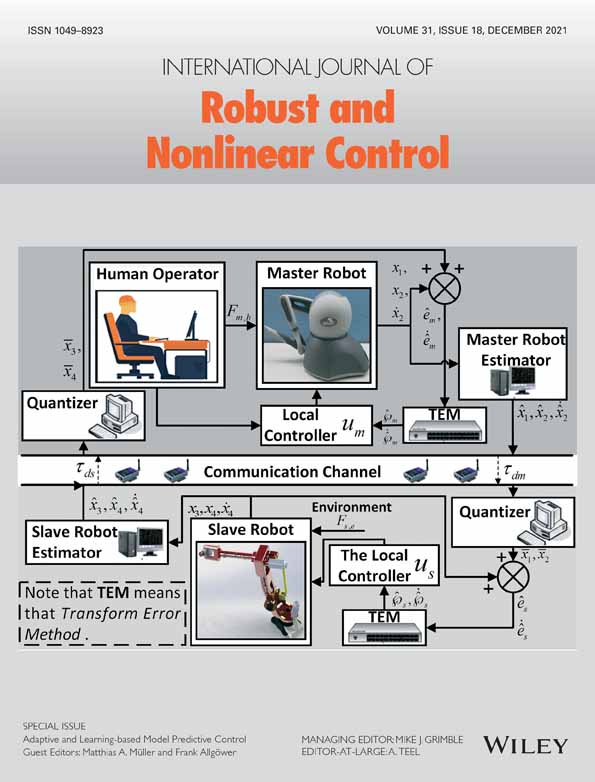Hierarchical predefined-time control of teleoperation systems with state and communication constraints
Abstract
The performance of the teleoperation system under multiple negative impacts cannot be easily predefined and regulated in general. This article aims to achieve the predefined performance of the teleoperation system under the effects of human operations, external disturbances, parametric uncertainties and communication constraints (including communication delays and quantized-data communication). The predefined performance includes the state constraints (i.e., the joint-space positions of the teleoperation system can be constrained in the predefined region throughout the control process) and predefined-time set stability (i.e., the synchronization errors can be forced to reach an arbitrarily small neighborhood of the origin in a predefined time). To this end, a hierarchical predefined-time control algorithm is newly designed via employing the error transformation method based on a novel limit-time regulator. By using the barrier Lyapunov function, sufficient conditions on the control parameters are formally derived for guaranteeing the aforementioned performance. Finally, we present several simulation experiments to illustrate the effectiveness and advantages of the proposed main results.
CONFLICT OF INTEREST
We declare that we have no financial and personal relationships with other people or organizations that can inappropriately influence our work, there is no professional or other personal interest of any nature or kind in any product, service and/or company that could be construed as influencing the position presented in, or the review of, the manuscript entitled.
Open Research
DATA AVAILABILITY STATEMENT
Data sharing not applicable to this article as no datasets were generated or analyzed during the current study.




